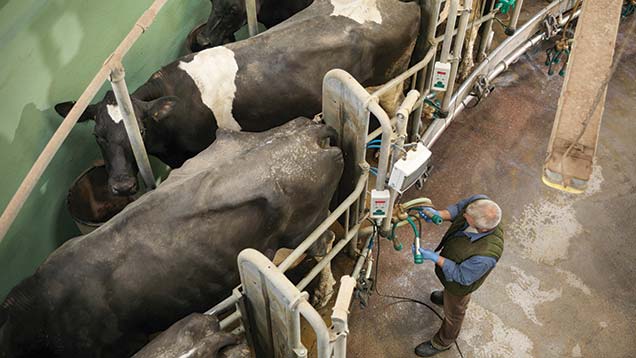Abolition of milk quota – don’t lose out on tax potential

Many milk producers have the chance to use the loss in value of milk quota to reduce their capital gains tax (CGT) bill from the sale or gifts of other assets. However this needs to be planned for, says Dan Knight of accountant Old Mill.
When milk quota ceases to exist on 31 March 2015, its owners will effectively make a capital disposal for tax purposes. Because in many cases the quota was bought in at much higher prices than its current negligible value, this will result in a capital loss.
To make use of those capital losses to offset other gains, a formal claim must be made on the individual’s annual tax return. This will need to be done within four years of the end of the tax year in which the loss arose.
See also: More dairy competition awaits when milk quotas are lifted
Once claimed, capital losses may be offset against gains recognised in the same tax year or carried forward to offset against gains in any future year. However, they cannot be carried back.
As an illustration, a husband and wife partnership might be milking 150 cows and producing in the region of 1m litres of milk a year. The quota held by the partners has a base cost of £100,000.
To account for the loss they have suffered on the fall in value of their bought-in milk quota, the partners will each need to make what is known as a negligible value claim in respect of their individual shares of the milk quota on their 2014/15 tax returns to crystallise the capital loss of £100,000.
The loss of £100,000 could then be utilised by the family in its tax planning. With current CGT rates of up to 28%, the loss could save them up to £28,000 in CGT.
For example, the partners may be considering gifting a house that they own in the village to one of their children. As well as offering the child security, this may also contribute to reducing any potential Inheritance Tax (IHT) exposure, by removing the property from the parents’ estate.
A gift of this property is likely to give rise to a chargeable capital gain because for tax purposes HM Revenue & Customs would value the gift at its open market value, compared with the value at which the parents may have bought or inherited it. The farming parents will be able to offset their £100,000 of milk quota capital loss against the gain on the house, so there may be no tax payable on the gift of the property.
If the farming business is structured as a limited company, the tax treatment will be different. Here, quota bought before 2002 will be treated as a capital disposal. However, the disposal of any quota bought after April 2002 may trigger trading losses, which are treated differently for tax purposes.
